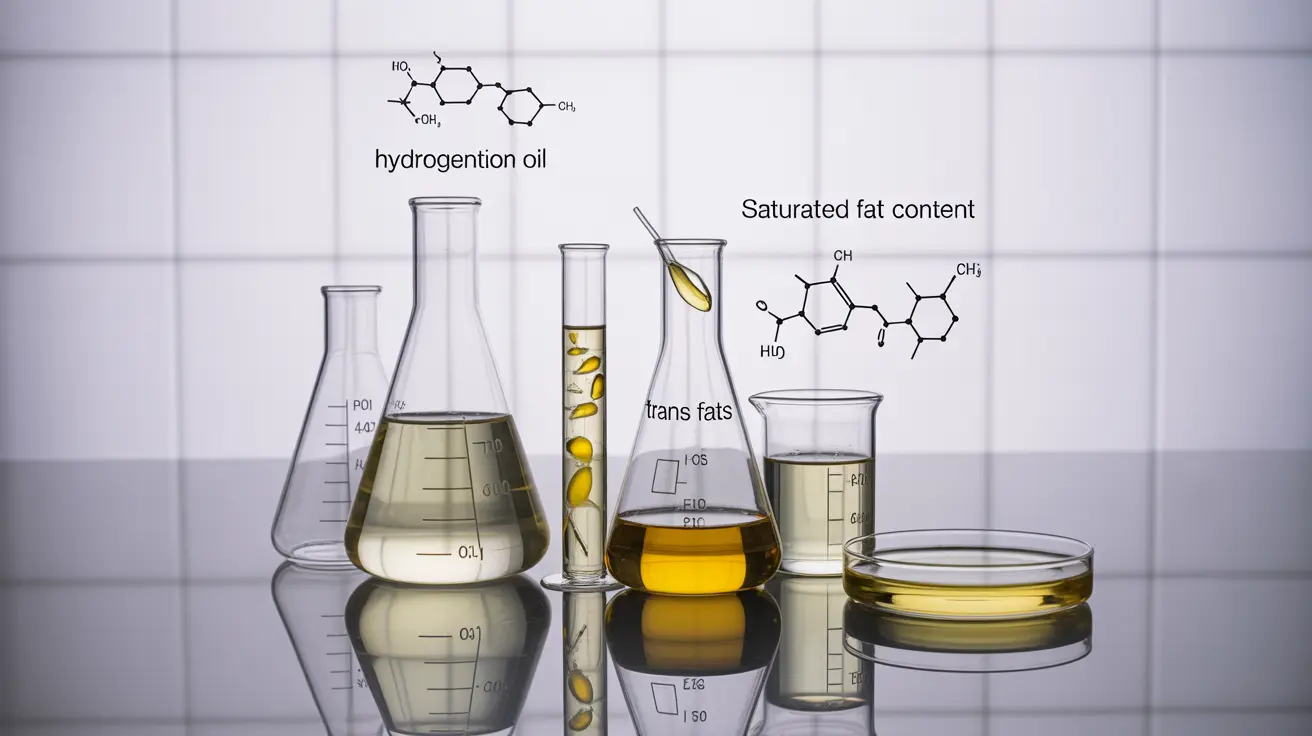Hydrogenated vegetable oil has been a staple in processed foods for decades, but growing research has revealed significant concerns about its impact on human health. Understanding what these oils are, their effects on our bodies, and how to avoid them is crucial for making informed dietary choices.
This comprehensive guide explores the science behind hydrogenated vegetable oils, their potential health risks, and practical ways to identify and avoid them in your diet.
Understanding Hydrogenated Vegetable Oils
Hydrogenated vegetable oils are created through an industrial process that adds hydrogen molecules to liquid vegetable oils, making them more solid at room temperature. This process extends shelf life and provides desired texture in processed foods, but it also fundamentally alters the oil's chemical structure in ways that can be harmful to health.
Types of Hydrogenation: Partial vs. Full
There are two main types of hydrogenation processes, each resulting in different products with distinct health implications:
Partial Hydrogenation
Partial hydrogenation creates trans fats, which are particularly dangerous for cardiovascular health. This process leaves some double bonds intact while converting others, resulting in an oil that's semi-solid at room temperature.
Full Hydrogenation
Full hydrogenation converts all double bonds to single bonds, creating a completely saturated fat. While fully hydrogenated oils don't contain trans fats, they still raise concerns about cardiovascular health due to their high saturated fat content.
Health Impacts and Risks
Research has identified several significant health concerns associated with consuming hydrogenated vegetable oils:
- Increased risk of heart disease
- Higher levels of harmful LDL cholesterol
- Lower levels of beneficial HDL cholesterol
- Increased systemic inflammation
- Greater risk of type 2 diabetes
- Potential contribution to obesity
Common Sources in the Food Supply
Hydrogenated vegetable oils are often found in:
- Processed baked goods
- Margarine and shortening
- Packaged snack foods
- Fast food items
- Some commercial peanut butter
- Frozen convenience meals
Reading Labels and Making Better Choices
To avoid hydrogenated vegetable oils, carefully read ingredient labels. Look for terms like "partially hydrogenated," "hydrogenated," or "shortening." Choose products made with healthier alternatives such as olive oil, avocado oil, or other unprocessed plant oils.
Regulatory Changes and Industry Response
In recent years, regulatory agencies worldwide have taken steps to limit or ban partially hydrogenated oils in food products. This has led to reformulation of many processed foods, though it's important to remain vigilant as manufacturers may substitute other potentially problematic ingredients.
Frequently Asked Questions
What are the health risks associated with consuming hydrogenated vegetable oils?
Consuming hydrogenated vegetable oils can increase the risk of heart disease, raise bad cholesterol levels, lower good cholesterol, and promote systemic inflammation. These oils, particularly partially hydrogenated ones containing trans fats, are linked to various cardiovascular problems and metabolic disorders.
How can I avoid foods that contain hydrogenated vegetable oils?
Read ingredient labels carefully, avoiding products that list "partially hydrogenated" or "hydrogenated" oils. Choose whole, unprocessed foods, cook at home more often, and opt for products made with natural, unhydrogenated oils like olive, avocado, or coconut oil.
What is the difference between partially and fully hydrogenated vegetable oils?
Partially hydrogenated oils contain trans fats and are considered more dangerous to health. Fully hydrogenated oils don't contain trans fats but are high in saturated fats. Both types should be limited in a healthy diet, with partially hydrogenated oils being particularly important to avoid.
Can hydrogenated vegetable oils cause inflammation and increase the risk of chronic diseases?
Yes, research shows that hydrogenated vegetable oils can promote inflammation in the body, which is linked to various chronic diseases including heart disease, diabetes, and certain types of cancer. The trans fats in partially hydrogenated oils are particularly inflammatory.
How have regulatory actions impacted the use of hydrogenated vegetable oils in food products?
Regulatory actions, particularly the FDA's ban on partially hydrogenated oils, have forced many manufacturers to reformulate their products. This has led to a significant reduction in trans fats in the food supply, though some products may still contain fully hydrogenated oils or other substitutes.




